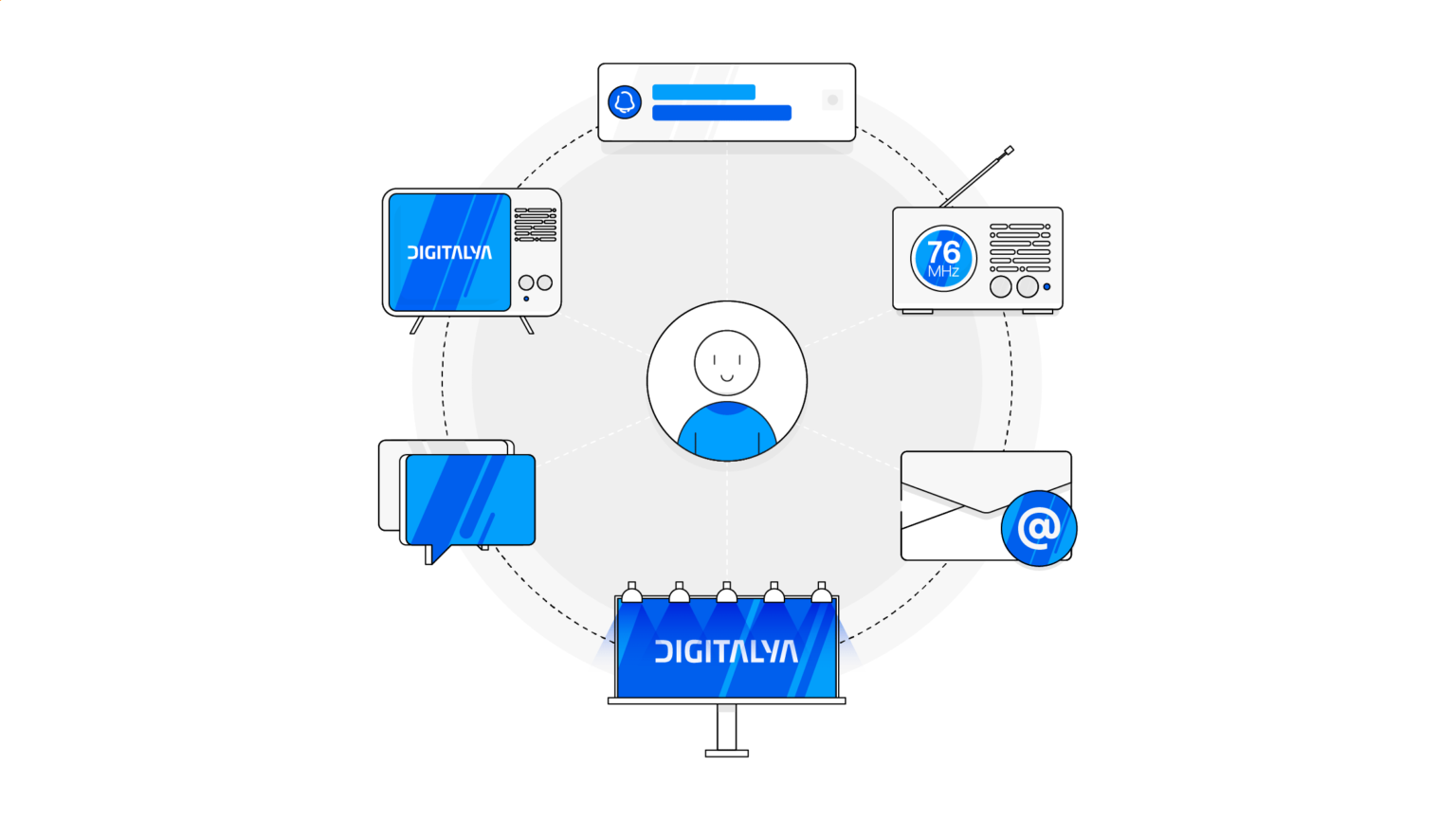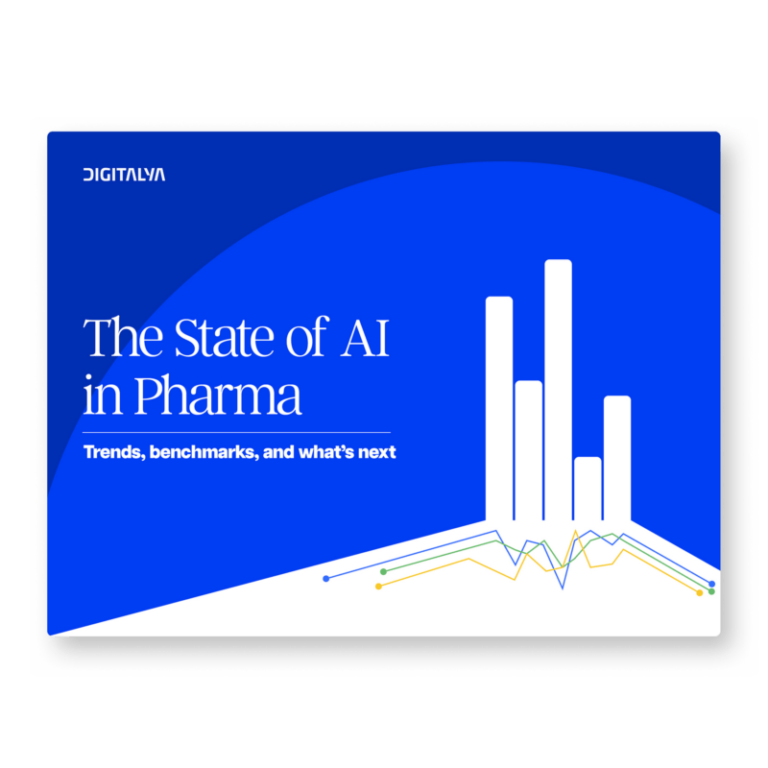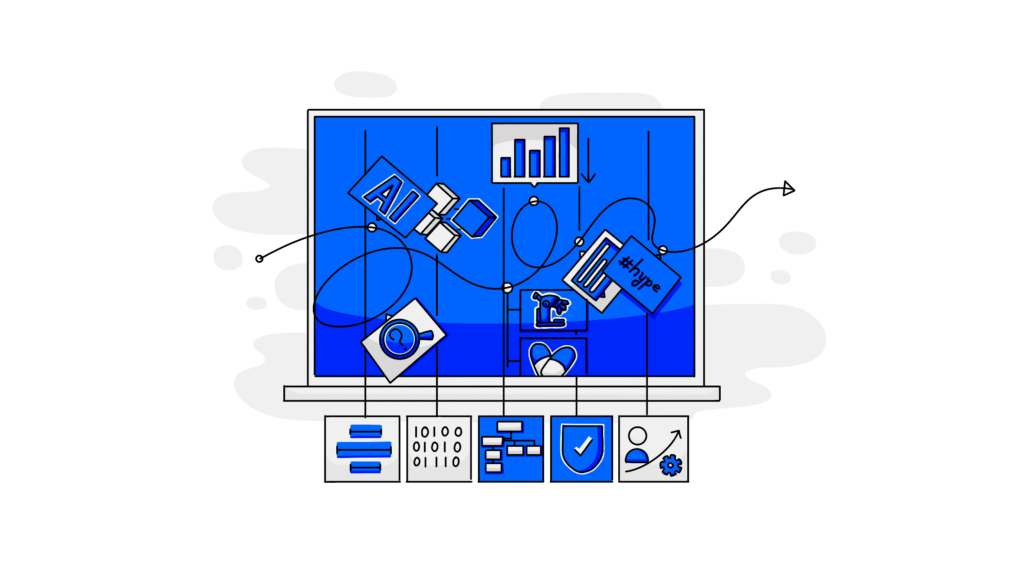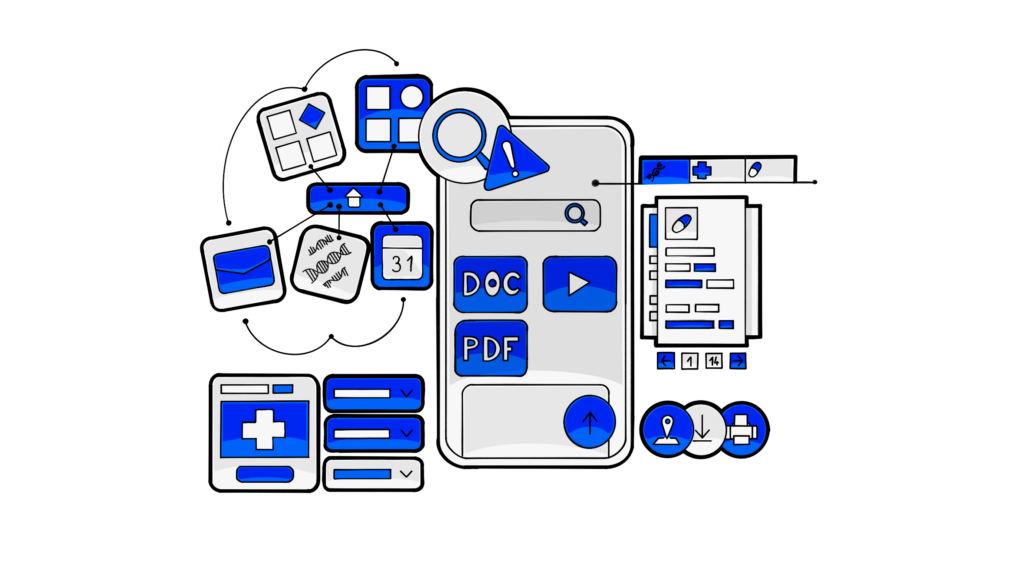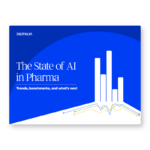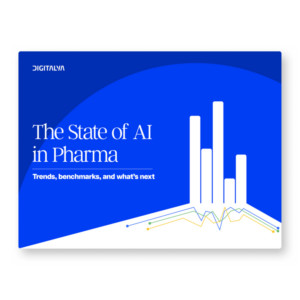Omnichannel marketing is a subject that won’t run out of interest any time soon, with customers increasingly looking for customized experiences. The pharmaceutical industry is rapidly evolving in its approach to customer engagement, driving the need for more integrated and personalized strategies.
The debate on omnichannel vs multichannel approaches is still fresh, as the line between the two is rather thin. Pharma marketers play a crucial role in moving from multichannel strategies to omnichannel to better engage healthcare professionals and patients.
We’ll explore more about how to tailor HCP engagement and which type of these marketing strategies provides better answers to customer expectations, especially as pharma marketing continues to shift from towards more integrated approaches.
1. Introduction
1.1 Why is HCP engagement important?
You may ask yourself why customer engagement is important in the first place. Why not continue to deliver product information and promote offers the way you always did? Especially when it comes to the pharma industry, where everything happens so fast, while healthcare professionals have so little time on their hands.
The answer, in short, is that Healthcare Professional (HCP) engagement plays a crucial role in the success of pharmaceutical companies. In the fast-evolving digital age, where HCPs are increasingly connected through multiple channels, the need for effective communication becomes even more vital.
To maintain and improve customer relationships, pharma companies need more than ever to build meaningful connections with HCPs. A tailored interaction and customer experience that drives engagement not only fosters trust but also ensures that important medical information and innovations reach the right hands. And this is why omnichannel in healthcare continues to fuel interest and debate.
1.2 The importance of choosing the right channel for effective communication with HCP
In the realm of pharmaceutical marketing, choosing the appropriate channel for reaching and engaging HCPs is paramount. A 2022 study by Across Health conducted in the US showed growth in preference for e-engagements across channels among HCPs, as compared to the pre-COVID period in 2019, while in-person interactions with pharma reps decreased.
This is no surprise considering the hard lessons of the pandemic, but we should also consider the increase in digital behavior across all age ranges and professions. Each HCP may have unique preferences when it comes to receiving information and selecting the right marketing strategy can make a significant difference in the effectiveness of communication.
Selecting the most appropriate communication channels is crucial to maximize engagement, as it enables personalized interactions and ensures that information is delivered in the most effective way for each HCP.
As such, understanding the differences between multichannel and omnichannel marketing is essential in optimizing HCP engagement strategies.
2. Understanding multichannel engagement with HCPs
2.1 Key characteristics of multichannel marketing
Multichannel marketing involves using multiple separate channels to reach healthcare professionals (HCPs), such as email, websites, mobile apps, sales visits, face to face meetings, and video calls.
Multichannel communication enables pharma companies to reach HCPs and patients through a variety of touchpoints.
The key characteristic of multichannel approaches in the pharma industry is their ability to leverage various touchpoints to disseminate information to HCPs. Multichannel marketing strategies are designed to maximize reach and engagement by leveraging these diverse channels.
2.2 Overview of traditional multichannel approaches in engaging HCPs
Many pharmaceutical companies still rely on traditional multichannel approaches, often operating with siloed data systems that can hinder integration and personalized marketing efforts.
Medical affairs teams often manage important data and interactions with HCPs, but when this information is siloed, it can limit the effectiveness of these strategies.
Nonetheless, multichannel approaches is the most widely used tactic in engaging HCPs. In addition to in-person visits by sales representatives, direct emails and remote engagement are the preferred methods by both pharma reps and HCPs.
In a study by Veeva on HCP engagement in Europe, it appeared that rep email was favored compared to remote engagement (43 % compared to 12%).
Still, in-person interaction is the preferred method, no matter the age range, going from 59% for HCPs of up to 35 years old to 75% for over 50 years old HCPs (which comes as no surprise, considering the kind of interactions they grew up with, both personally and professionally).
However, the same study points out that in 2020 Europe, 70% of the HCPs were digital natives. This means that companies need to include more digital channels in the customer journey.
For instance, in their marketing approaches, companies might utilize emails to share product updates, conduct webinars to present clinical data, and maintain a social media presence to interact with HCPs on a more informal level.
Overall, multichannel pharma marketing aims to integrate these various channels, including data from medical affairs, to improve engagement, digital maturity, and strategic decision making.
2.3 What are the benefits and limitations of multichannel marketing for tailored HCP engagement
Multichannel marketing offers several benefits. One of the key advantages for pharma companies is the ability to enhance campaign effectiveness, personalize communications, and increase audience engagement. You can promote your medicine and healthcare products exactly where the HCPs consume content. By exposing them to the information several times, you create awareness and familiarity, which increases the probability for the HCPs to prescribe that very product.
By using multichannel strategies, you get a broader reach for your products and the ability to cater to various HCP preferences. These strategies also help identify and engage potential customers by reaching them through their preferred channels and guiding them through the customer journey. Still, it also has limitations in engaging with a multichannel customer.
First of all, the digital channels keep multiplying. In order to cover most of them, you may need considerable resources. Then, fragmented communication across multiple channels can lead to inconsistencies and might not provide a seamless experience for HCPs. Often times, a marketing campaign in a multichannel context faces challenges with message consistency and coordination across platforms.
3. Exploring omnichannel marketing in healthcare
3.1 Key principles of omnichannel marketing
Understanding the key elements that drive successful omnichannel marketing in pharma is essential for building effective strategies that enhance customer engagement and trust.
Omnichannel marketing takes the concept of multichannel a step further by focusing on creating a cohesive and seamless experience across all channels. The key principle of an omnichannel healthcare strategy is to ensure that HCPs can transition seamlessly between different channels without losing context or experiencing communication gaps. Omnichannel marketing aims to create an integrated experience for HCPs, where every touchpoint is connected to deliver a unified and personalized journey.
In order to achieve this kind of experience, an omnichannel strategy must follow 3 key principles:
- Adopt a consistent brand tone and vision across all channels that can be easily identified by anyone who interacts with the brand, ensuring consistent messaging throughout every engagement.
- Personalize messages that you communicate to HCPs based on their specific interests.
- Deliver content that takes into account your audience’s past interactions and the current stage of the customer journey.
3.2 The differences between omnichannel vs multichannel
Unlike multichannel, where each channel operates independently, omnichannel integrates all channels into a unified system, allowing data and insights to flow seamlessly between them. Integrated data enables a unified view of customer interactions across all channels, supporting a seamless and personalized experience. This integration, along with customer centricity, is the key difference.
They enable a more personalized and relevant communication experience for HCPs. By monitoring and analyzing customer interactions across channels, organizations can achieve better engagement with HCPs. We can say that the difference between multichannel and omnichannel strategies revolves around the customer-centered view of the strategy.
Omnichannel experiences rely on customer data and are tailored to customer interests, while multichannel marketing uses unidirectional communication by just promoting products on various channels without a strategic link between those channels or with the audience.
3.3 Advantages of omnichannel for HCP engagement
An effective omnichannel marketing strategy is defined by the integration of data, analytics, and personalization to deliver a seamless and personalized experience across all channels, ensuring consistent and tailored interactions that drive better engagement and results.
Omnichannel technologies offer several advantages for tailored HCP engagement. By providing a unified and personalized experience, HCPs feel more valued and are more likely to engage with the content.
Customer loyalty – one of the major benefits of omnichannel marketing is that you increase the chances of retaining the HCPs you approach. When you provide personalized interaction and a consistent experience, customers trust your brand more and tend to return.
Increased revenue – following customer retention and by adding new conversions thanks to the improved customer experience and coherent customer interaction, HCPs are very likely to prescribe more of your products.
Measure – how do you know you apply a successful omnichannel strategy? By measuring the impact. If you use an omnichannel platform, it is easy to see how each channel performs, where more conversions come from, and how each target group behaves in relation to the diverse channels you employ. Omnichannel marketing efforts integrate data, analytics, and personalization to deliver a seamless and personalized experience for HCPs, optimizing engagement. With this knowledge base, you are able to adjust at any point in order to deliver a consistent customer experience for each HCP persona.
4. Tailoring HCP engagement through multichannel strategies
Now that we’ve seen the differences between omnichannel and multichannel approaches, it is up to you to decide which suits your company better. Although omnichannel engagement is more consistent, this is not to say that you cannot have tailored engagement using a multichannel approach.
4.1 Leveraging various channels for personalized HCP communication
To maximize the potential of multichannel marketing, companies can leverage various channels and devices to deliver personalized communication to HCPs. Utilizing digital tools such as mobile apps, websites, and online platforms helps engage customers more effectively by enabling data-driven and ongoing interactions across channels. This might involve sending tailored emails based on their specialty or linking the social media ad campaign to a landing page.
In addition, you can link the product campaign to informational blog articles on the subject, knowing that those HCPs interested in the topic will also learn about the related new medicine or device.
4.2 Customizing content and messaging to meet individual HCP needs
The better your communication is adapted to HCPs’ needs and behavior, the more chances you have to get them engaged and adopt your products. For instance, when they want to stay updated with medical subjects, medical professionals prefer to engage in medical education at home. The best time to do it is during the evenings. So, you can schedule evening webinars or newsletters to be digested in the comfort of their homes.
The preferred format is another customization to take into account. It appears that oncologists favor longer-form medical materials compared to other specialists. The type of content is also paramount. When it comes to helping them stay up-to-date with medical advances, clinical trials, or scientific data on treatments and diseases, guidelines and algorithms are the preferred format by oncologists, while rheumatologists and endocrinologists seek trusted expert opinions – as research by Healthcasts has shown.
5. The power of omnichannel for tailored HCP engagement
5.1 Creating a seamless and personalized HCP experience across channels
What differentiates the omnichannel approach from the multichannel strategy is the seamlessly integrated message, tone of voice, and visual style across all channels, allowing customers – in our case HCPs to have a coherent experience that makes sense all around the brand touchpoints.
Making this experience about the particular needs and behaviors of the HCP will only add value to their interaction with your company and products.
5.2 Leveraging data and insights to deliver targeted content and resources
An omnichannel customer can tell you so much about how they acquire information, which formats and media channels they prefer, and what type of interactions they are more likely to embrace. Effective data management is crucial for creating a comprehensive and integrated view of HCP interactions, enabling more targeted and personalized communication. By utilizing data and insights effectively, pharmaceutical companies can deliver targeted content and resources to HCPs, enhancing engagement levels. Advanced technologies, such as real-time analytics and predictive analytics, empower pharma companies to make smarter decisions, optimize campaigns, and personalize engagement based on timely insights and anticipated HCP needs.
Consult with a software development company to better understand how you can make the most of the customer data already available.
5.3 Utilizing automation and personalization to enhance HCP engagement
Automation and personalization further boost HCP engagement by delivering relevant content at the right time and through the preferred channel. With management systems that automate communication tasks and sales flows, it is now much easier to tailor the content of your offers and messages, so HCPs get exactly what interests them when they are the most open and willing to consider what your pharma company has to present. A healthcare omnichannel platform can do the job easily, with maximum impact.
These strategies play a crucial role in driving growth and success in the pharma business by enhancing customer engagement and brand awareness through personalized experiences.
6. Key considerations for implementing multichannel and omnichannel strategies
6.1 Evaluating HCP preferences and behaviors
It all starts with the customer story. Understanding HCP preferences and behaviors is vital for tailoring communication strategies effectively. For that, you need to listen to them carefully and identify both patterns and specificities.
Only by addressing each of those, in particular, can you come up with that personalized experience we talked about. Insights from the sales team are very important to draw a clear picture of the HCPs you are serving. So are other sources of information, such as website visits, email opening rates, etc.
6.2 Integrating data and technology systems for seamless channel coordination
Integrating data and technology systems facilitates seamless coordination among channels and ensures a consistent user experience. Healthcare app development, for instance, is a good way to marry technology with traditional means of interaction with the HCPs.
Healthcare apps and platforms make it easier to coordinate all the efforts of reaching out to the target audience while also learning precious insights and conclusions that help enhance the customer experience.
6.3 Compliance and privacy considerations
Compliance and privacy considerations are essential to safeguard sensitive HCP data and adhere to industry regulations. Access to such information comes with great responsibility to paraphrase a well-known line.
When you build an omnichannel marketing strategy, check the compliance and regulations requirements. There may be differences depending on the country or state. For instance, the U.S. applies HIPAA compliance. In Europe, you must abide by GDPR compliance. The World Health Organisation also issued a comprehensive guideline on “Ethics and governance of artificial intelligence for health.”
7. Measuring success and ROI in tailored HCP engagement
7.1 Identifying key metrics for assessing HCP engagement effectiveness
Key metrics allow companies to assess the effectiveness of their HCP engagement strategies. Only by having clear indicators that allow you to compare values before, during, and after the marketing campaigns will you know how well it worked and what you can do differently.
Set goals for website traffic, acquisition, email click-through rates, reach, conversions, or bounce rates across all channels. Be aware that in pharma, the success rates of the marketing efforts also depend on the medicine’s life cycle. You can also measure UTM parameters, namely URL tags that track offsite clicks and send the information to your Google Analytics dashboard.
7.2 Analyzing the impact of multichannel and omnichannel strategies on HCP satisfaction and behavior
Measurements are futile if you just read the results but don’t take any further action based on what the data reveals. Analyze the impact of multichannel and omnichannel strategies on HCP satisfaction and behavior and refine future approaches.
Quantitative data is valuable but run qualitative analyses, too. One good way to get actionable insight is through customer surveys along with their interaction milestones with your company. You can find inspiration in this survey template by Hotjar.
Although HCPs’ are extremely busy and very careful about how they spend their time outside work-related slots, conducting interviews with them is a very helpful method to learn about the impact of your multichannel and omnichannel strategies on HCP satisfaction and behavior. Who better to tell you how it worked for them than the audience itself?
7.3 Continuous improvement and refining strategies based on performance data
You should make a habit of analyzing the impact of the omnichannel and multichannel approaches you employ to engage HCPs. People’s preferences and behaviors evolve. With the rapid pace of our society, changes can occur much faster than we’d think.
Once you learn about what format a certain category of HCPs prefers to stay up to date with medical developments, focus on delivering the information about your new drugs the same way.
Does your data show that they access your newsletter and articles more on mobile devices? Then, tailor your other content for mobile use and think about how else you can engage them through these devices.
8. Conclusion
In the dynamic landscape of pharmaceutical marketing, tailored HCP engagement remains pivotal for success. Choosing between multichannel and omnichannel strategies depends on understanding the unique needs and preferences of HCPs.
By leveraging the power of both approaches and adopting a data-driven and personalized approach, pharmaceutical companies can forge lasting and fruitful relationships with HCPs, ultimately driving better patient outcomes and advancing healthcare as a whole.
